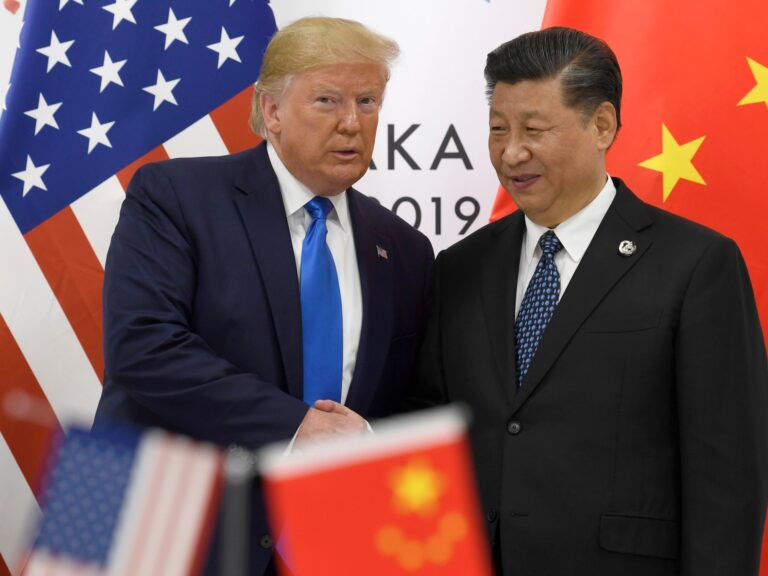“I hope that we can solve many problems together,” the U.S. president-elect said after a phone conversation with Xi Jinping.
President-elect Donald Trump said he had a “good” telephone conversation with Chinese President Xi Jinping, and suggested that the two countries will work to resolve various issues going forward.
Friday’s phone call came three days before Trump returns to the White House, where he has promised to impose high tariffs of up to 60% on imports from China.
President Trump’s trade policies could worsen already strained U.S.-China relations. High tariffs on Chinese goods could raise prices for U.S. consumers, negatively impact China’s economy, and spark a trade war between the two countries.
However, the incoming US president expressed optimism about the future of relations with China.
“We have solved many issues together and we hope to do so soon. We talked about balance on trade, fentanyl, TikTok, and many other topics,” Trump said in a social media post. I wrote it.
“President Xi and I will make every effort to make the world more peaceful and secure.”
Last year, the U.S. Congress passed a bill banning TikTok, a video platform owned by its Chinese parent company, citing concerns about privacy and content manipulation.
But Trump aides have indicated that the president-elect is considering options to protect the popular platform from a federal ban.
Relations between China and the United States have deteriorated in recent years over a number of points of tension, including trade issues, the status of Taiwan, territorial claims in the South China Sea, and continued efforts by the United States to curb China’s influence in the Asia-Pacific region. There is.
During his first term, Trump made competition with China a central focus of his foreign policy, often complaining that Beijing’s trade policies were unfair.
Washington has a large trade deficit with Beijing. Last year, China’s exports to the United States amounted to approximately $401 billion, and its imports from the United States amounted to $130 billion.
President Trump’s successor, Joe Biden, has also prioritized competition with China and sought to deepen U.S. relations with allies in the Asia-Pacific region.
For the past two years, the United States has accused China of conducting cyberattacks and flying reconnaissance balloons over China, claims that Beijing rejects.
In the latest U.S. National Security Strategy, a document produced every four years that outlines the country’s international interests, the Biden administration called Beijing the “most significant geopolitical challenge” to the U.S. government.
He added that the United States is “in the midst of a strategic competition to shape the future of the international order.”
President Trump has appointed a number of China hawks to the next administration, including appointing Sen. Marco Rubio, who is under Chinese sanctions, to be the top U.S. diplomat, secretary of state.
Rubio said during his Senate confirmation hearing earlier this week that China is the “greatest threat” to American prosperity.
“If we don’t change course, we will live in a world where many of the things that are important to us on a daily basis, from our safety to our health, depend on whether the Chinese allow us to do so.” ”’ he said.
Still, U.S. and Chinese officials often stress that they are not seeking a repeat of the Cold War.
Chinese Ministry of Foreign Affairs: “We will view and handle China-US relations in accordance with the principles of mutual respect, peaceful coexistence, and win-win cooperation advocated by President Xi Jinping, and resolutely protect our country’s sovereignty, security, and development interests.” Guo Jiakun reports. officials told reporters Thursday.

